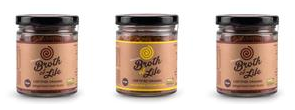Offer
Provide additional details about the offer you're running.
Provide additional details about the offer you're running.
Provide additional details about the offer you're running.

Written by Dana Brown.
What is self-care? It’s not an indulgence; it’s a necessity. Self-care is often the first thing we sacrifice when life explodes and the calendar overflows.
If you experience constant stress, irritability, anxiousness, or poor eating or sleep habits, it’s time to recalibrate. Self-care is crucial to maintaining a balanced life because it helps to prevent overload burnout, reduces the negative effects of stress, and allows you to refocus.
Everyone recharges differently. Some people meditate, while others seek nature or escape into a good book. Depending on your individual situation, you can develop a holistic self-care plan that works for you.
Fitness and exercise are important components to self-care. Finding that balance, however, can prove challenging and intimidating. If you’re just starting a fitness program, these steps will help:
The Mayo Clinic’s checklist is a great resource to determine how you measure up.
Create your fitness program. Define your fitness goals. Design a routine that includes about 150 minutes of moderate or 75 minutes of vigorous activity weekly. Build activity into each day.
Build up gradually, especially if you’ve not worked out in a while. Also, if exercise hasn’t been a priority before, and you’re worried that you won’t have time to dedicate hours to a program each day, that’s okay!
Find 10 minutes here or a half an hour there to add in a walk. Jogging with your dog or playing tag with the kids counts! Sign up for a salsa class or schedule nightly dance competitions with your children before bedtime. If you’re a multitasker, catch up on your favorite shows while you walk on the treadmill.
Worried that you’re losing your motivation? Set new goals or try a different activity. Instead of measuring your results every day—or even every week—reassess every four or six weeks. Ultimately, your goal is to feel healthy and energized, not frustrated and more stressed!
People who abuse alcohol or drugs never intended to travel that path. Exercise is an important component in their recovery as they work to regain their mental and physical health because it:
Just a warning—if you’re just starting out, begin slowly. Don’t overdo it and risk injury.
So many possibilities exist to incorporate what you love and enjoy into a self-care routine. Start small, perhaps with just 10 minutes a day. Increase the time you spend on taking care of yourself gradually, and that self-care will eventually become an established part of your day. Never feel guilty about making time to ensure your mental and physical well-being.
Ready to get serious about your health?
Join 30,000 others for free health articles and special offers.
Broth of Life acknowledges Aboriginal and Torres Strait Islander First Nations as the traditional custodians of Australia.We recognise their continuing connection to land, waters and culture. We pay our respects to their Elders past, present and emerging.


